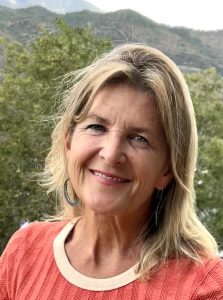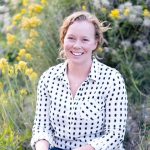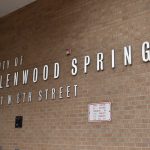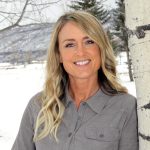Q&A with Roaring Fork School District District E incumbent Kathryn Kuhlenberg

Courtesy/Kathryn Kuhlenberg
Editor’s note: This is the second installment of a Q&A series with Roaring Fork School District board candidates. Responses from District A candidates Jodi Barr and Tamara Nimmo appeared in the Oct. 3 edition of the Post Independent.
Kathryn Kuhlenberg, the incumbent District E representative on the Roaring Fork School Board of Education, is seeking reelection to a second term. She faces challenger Elizabeth Cockrill Taylor for the District E seat in the November election.
District E includes much of Missouri Heights and extends north of Colorado Highway 82. An interactive map of district boundaries is available at rfschools.com.
Q: What made you run for the school board?
A: The board of education is a crucial part of our system of public education, and it can wield a huge amount of power. I firmly believe that power must be used to the benefit of students in a nonpartisan way. I have a strong background for this role, including degrees in education policy and law, and among other employment experiences, I am currently employed as an early childhood educator. As a result, I possess the knowledge and skills to manage this governmental body, and I also have maintained a connection to classrooms and children. In my first term, this unique combination has been invaluable and has allowed me to assess situations and policy concerns from multiple perspectives. I decided to run again because I understand the impact that a board of education can and should have, and my skills and experiences will allow me to continue to leverage positive change.
Q: Tell us about your background and why you think you are a good fit for the school board. What is something you want the community to know about you?
A: First and foremost, I have strong ties to the Roaring Fork Schools — I have a fifth grader, a third grader, and a first grader in our classrooms right now, and I have every reason to ensure that the education our students receive is the very best it can be, and that the decisions of the board of education have positive impacts in classrooms and on student outcomes. Heading into my first term, I was just getting acquainted with our systems, but this time around I am confident that I can navigate them more easily. With that knowledge and experience will come consistency and stability for the board and the district office staff. Most people do not realize that I am an early childhood educator with a deep passion for public education, and although my own career path has been unique, it has perfectly suited me to step into this role on the board of education and help professionalize and advance the board’s work.
Q: If elected, what is something you are most focused on to help improve the school district?
A: Systems of accountability are crucial. The board’s power and authority are granted via state law, and understanding and working within that is critical. When a board member knows their role and authority, they are able to exercise it. This term, I would like to focus more intently on exactly how the board can and should hold our systems accountable to students and staff. The board has spent a massive amount of time updating district policies so the policy manual is finally up to date and in compliance with state statutes. The board has also worked hard to ensure that each of these policies contains an accountability provision. Now, it is the board’s responsibility to ensure those accountability provisions and metrics are being met and to address circumstances when they are not. If elected, I will ensure that the board meets this objective and helps solidify systems and cycles of accountability that will ultimately serve students and staff. In systems as big and complicated as school districts, progress is most often incremental and glacial, but when board members know their role and know how to exercise their power, that process can be quicker.
Q: What do you think is the biggest problem RFSD is currently facing?
A: In my opinion, the biggest problem RFSD — and public schools nationwide — is currently facing is declining student enrollment. Birth rates have been consistently declining for the last several years and are expected to continue to do so, and that decline is severely exacerbated by the housing crisis in our communities. Public education is funded on a per-pupil revenue model, so every student who is not in our classrooms means less funding. In the last couple of years, RFSD has been planning and preparing for this by engaging with a demographer and projecting enrollment based on data rather than simply basing it on the previous year. The projections are that enrollment will continue to decline, and as that happens, it will be imperative that RFSD intentionally engages staff, families, and students to determine exactly how we manage those declines and preserve our small rural schools that serve our communities and students.
Q: Do you support passage of ballot measure 7A, which would implement a quarter-cent sales tax to help increase access to early childcare in the Roaring Fork and Colorado River valleys?
A: I absolutely and unequivocally support the passage of ballot measure 7A. As an early childhood education professional, RE-1 school board member, parent of three young children, and longtime community leader and advocate, I understand acutely the nature of the early childhood education crisis. Families struggle to find care that fits their unique needs and budgets, while providers struggle to offer competitive pay and benefits to retain the best staff and provide the highest quality of care for our youngest learners. Ballot measure 7A is a local, sustainable option that will allow us to create critical infrastructure that caters specifically to our valley’s unique needs. Most importantly, it will provide funding that helps increase educational outcomes for the kids we care about without raising the cost of everyday essentials.
Q: RFSD has faced a significant achievement gap between native English speakers and second language learners for years on end. How do you plan to emphasize new strategies to narrow the achievement gap?
A: It is simply unacceptable that the achievement gap in RFSD persists at the level it currently does. I strongly believe that if we are failing any of our students, we are failing them all. It is the obligation of systems of public education to provide education for all, and that includes students with different language skills, learning needs, and abilities. It is a huge job, but public education is what our democracy relies upon to ensure there is an engaged and able electorate. RFSD has to do better. If reelected, I am hopeful I will have the time and capacity to focus more intently and specifically on this issue, because it should have been addressed long ago. The board of education recently updated the Culturally and Linguistically Diverse Education policy, which includes annual reporting and accountability provisions. Part of that reporting will be specific data on what is and isn’t working for kids, families, and staff. This data will be critical in determining the best course of action. The board also now includes specific and measurable superintendent goals, and some of those should focus on closing the achievement gap. Working within the power and authority of the board, I will demand that the work on this front happen with urgency and specificity.

Support Local Journalism

Support Local Journalism
Readers around Glenwood Springs and Garfield County make the Post Independent’s work possible. Your financial contribution supports our efforts to deliver quality, locally relevant journalism.
Now more than ever, your support is critical to help us keep our community informed about the evolving coronavirus pandemic and the impact it is having locally. Every contribution, however large or small, will make a difference.
Each donation will be used exclusively for the development and creation of increased news coverage.










